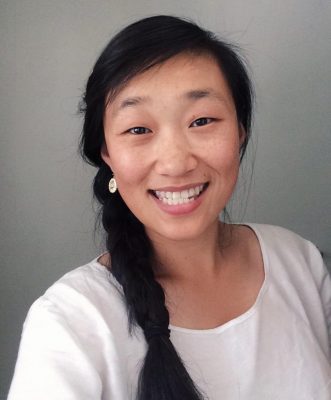Student Spotlight: Michelle Tong

I understand you completed your degree this January. Congratulations! What was your area of research?
I study memory for smells and the molecular mechanisms involved in remembering them.
What inspired you to choose this field of study?
As a psychology major, I had to take a course in sensation and perception, as most psychology majors do. In the text, there was a small section on olfaction—the sense of smell—hidden among thick chapters about vision and audition, and the mystery of the sense spoke to me. So, when I applied for graduate school I looked into labs that studied olfaction.
Why is this research important?
Studies of olfactory memory can help us deepen our understanding of how the brain translates the physical world into its “memory world.”
How did you integrate research into your teaching or vice versa?
I’m dedicated to undergraduate research mentorship. Throughout my graduate studies, I worked with several undergraduate researchers in the lab. The most obvious way that my teaching integrates with my research is that I use techniques for groupwork and project-based learning to create productive research projects with my undergraduate researchers. In the classroom, my researcher’s mind is best manifested in my dedication to evidence-based learning. I read primary articles in education scholarship and use these to inform my course design. Additionally, I’m always asking my students for feedback and incorporating their feedback into every aspect of my classes.
You’ve been an active participant in CIRTL at Cornell programming. What have been some of the most rewarding CIRTL at Cornell programs/courses/events you’ve been involved with?
I first got involved with CIRTL at Cornell through a summer multi-session workshop on careers in higher education. Since then I’ve attended several workshops in the Inclusive Teaching Series. Most recently, I’m helping to organize a workshop on integrating inclusive teaching practices into STEM courses.
How has your participation in CIRTL at Cornell and CTI programs helped shape your future research and/or teaching methods?
CU-CIRTL programs have offered me access to resources that have helped expand my views on teaching methods. The most wonderful part of my participation, however, has been the other participants. I’ve greatly benefited from the stories and insights of the teaching community that CIRTL at Cornell and CTI have created at Cornell.
You’ve also been involved with the Cornell Prison Education Program. Can you please elaborate on your experiences with this program?
I’m an instructor for Introduction to Psychology. I have a small group of students seeking their associate’s degree while incarcerated. They have been the most engaged group of students that I’ve had the pleasure to teach. Every class is full of fascinating insights and lively discussions.
What are the benefits of participating in teaching professional development programs like these while in graduate school?
I didn’t go into graduate school knowing what I wanted to do as a career. Early in my graduate studies, my participation with various programs was one of the experiences that helped me to develop an interest in teaching in higher education. As I progressed through my degree, these programs helped me to develop strong teaching skills that I’ve implemented in my own classes.
What’s next for you?
In fall 2016, I’m starting a tenure-track faculty position at a small liberal arts school in Indiana. Looking forward to the adventure!
Interview by Sally Kral, communications and outreach assistant in the Graduate School.
